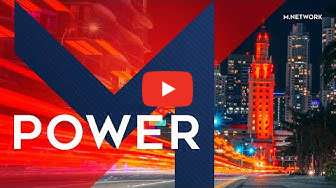How AI Generated Marketing, Content, and Distribution Might Reshape Humanity
The Dark Ages began sometime in the 5th Century following the fall of the Western Roman Empire. Some scholars have used the term “dark” as a contrast to the “light” of classical antiquity. It has been suggested that the entire era was marked by intellectual, financial, and cultural decline. Others have maintained that the term “dark” refers to the dearth of reliable records from that era. The scarcity of verifiable information from this period leaves our understanding of the Early Middle Ages in the “dark”. Either way, the result is the same. The Dark Ages remain dark. We can learn precious little about them and, therefore, may be doomed to repeat their mistakes.
Since the launch of ChatGPT, artificial intelligence has come with everything from the promise of streamlined workflow to the warning that this will mark the end of human civilization as we know it. Every time another photo of an Asian, twelve-fingered Taylor Swift riding a “photo-realistic” unicorn hits the Internet, speculation abounds as to what an AI-generated future is going to look like. Some harken back to scenes from the 60’s cartoon, The Jetsons. Others imagine something more akin to Skynet becoming self-aware in The Terminator.
Will AI usher in a new era of seamless communication and productivity, providing limitless access to knowledge?
Will AI become self-aware and destroy all of humanity?
As marketing professionals, we suspect that it will do neither.

If history is an accurate predictor of future events, we need only to look at how every other information technology has been used.
The printing press to radio, moving pictures to television, the Internet to social media, and now AI.
All of them had the promise to transform and enrich, illuminate, and educate. That said, one need only listen to Newton N. Minow’s famous Television and the Public Interest speech – also known as the Vast Wasteland speech – to get a feel for where this is going.
AI will most certainly be able to create content that is indistinguishable from human-made, or “real” content, but it is doubtful that content will overtly and intentionally have the sinister goal to misinform or mislead. We don’t think will it have the noble intent to enlighten or enrich either..
No, it is far more likely that most AI-generated content will have the sole intent of making somebody a crap-ton of money.
And the way it will make money is the way all information technologies make money today:
Content + Distribution + Advertising = $$$
U.S. companies spend more than $400 Billion per year to reach their target audiences through advertising. Media outlets and tech platforms sell this advertising based on the size of the audience they can deliver. How do they get these audiences? Content.
The traditional problem with content has been that someone needs to make it. With AI, the human element, along with all of humanities pesky limitations, will be removed. There will be no difficult editorial decisions or ethical challenges. Those will be replaced by the end goal and the algorithm. Artificial Intelligence will not only be able to create oodles of content, that content will be tailor-made and targeted to attract specific, desirable, audiences. AI will make content that is optimized to garner clicks, likes, and follows. Audiences will come in droves. Advertisers will pay big bucks. Everyone will be happy.
The only problem, of course, is that the AI-generated content created for the sole purpose of getting people to consume it means that the nature of the content won’t matter. AI will give individuals exactly what they want, not what they need, not what is useful to them. There will be no more international, national, regional, or local news, information, and entertainment. AI will replace all of that with content that is made just for YOU. Because of how easy it will be for AI, it won’t be long before we see custom-created content that targets specific individuals, combined with bulk-generated content that attracts specific cohorts. The proliferation of this content will be rapid, overwhelming, and insanely profitable. Embedded within this content, of course, will be AI generated advertising and advertorials that are also optimized to catch your attention and provoke a call to action.
Buy. Join. Give. Go. Click. Vote.
AI will create the content. AI will build the websites that distribute the content. AI will create the ads that sell products to the people viewing the websites where the content is housed. And AI will collect the billions and billions in advertising dollars from corporations who will never have seen a marketing strategy so efficient and effective. AI will create content, distribution platforms, and advertising quickly and at a price that will allow for a near infinite quantity and variety of money-making distractions.
Within a generation, this new paradigm will drown out all other advertising agencies, distribution platforms, and content creators, including all news, art, entertainment, official government, and even emergency information. Make no mistake, non-AI content will not go away. It will simply be ignored, buried in a torrent of highly targeted, behaviorally optimized, inescapable, AI generated flash and fluff.
The most terrifying thing about this AI induced content consolidation is that by the time people start asking whether the content they are consuming is accurate or useful, or even more frightening, what consuming all this content is doing to them, it will be too late. We will have entered a new Dark Ages. This time, however, it won’t be a dearth of information that makes it dark. It will be that there so much inaccurate or even nonsensical information that there will be no way to know how to filter it out. During this time, and for generations after, consumers, researchers, scientists, philosophers, and governments will have no way of knowing what is real and what is fake. Still, they will be happy for the distraction and will be corralled into information-tribes so that they can be more efficiently tracked, targeted, and compelled.
Stay tuned.



